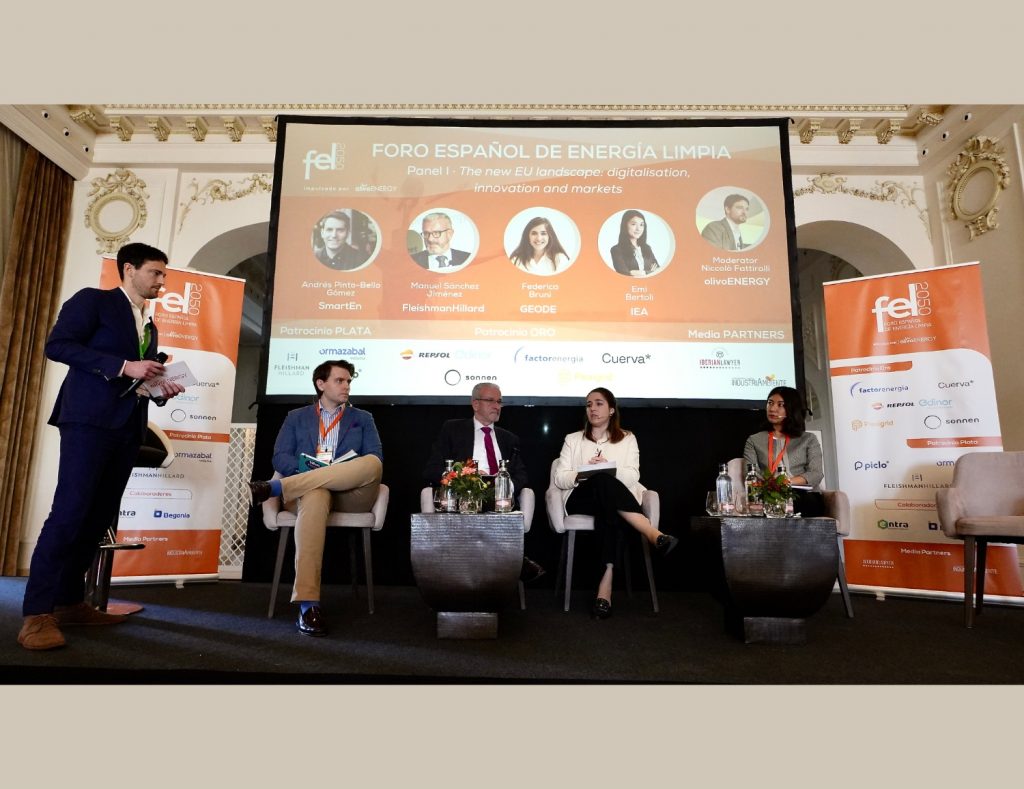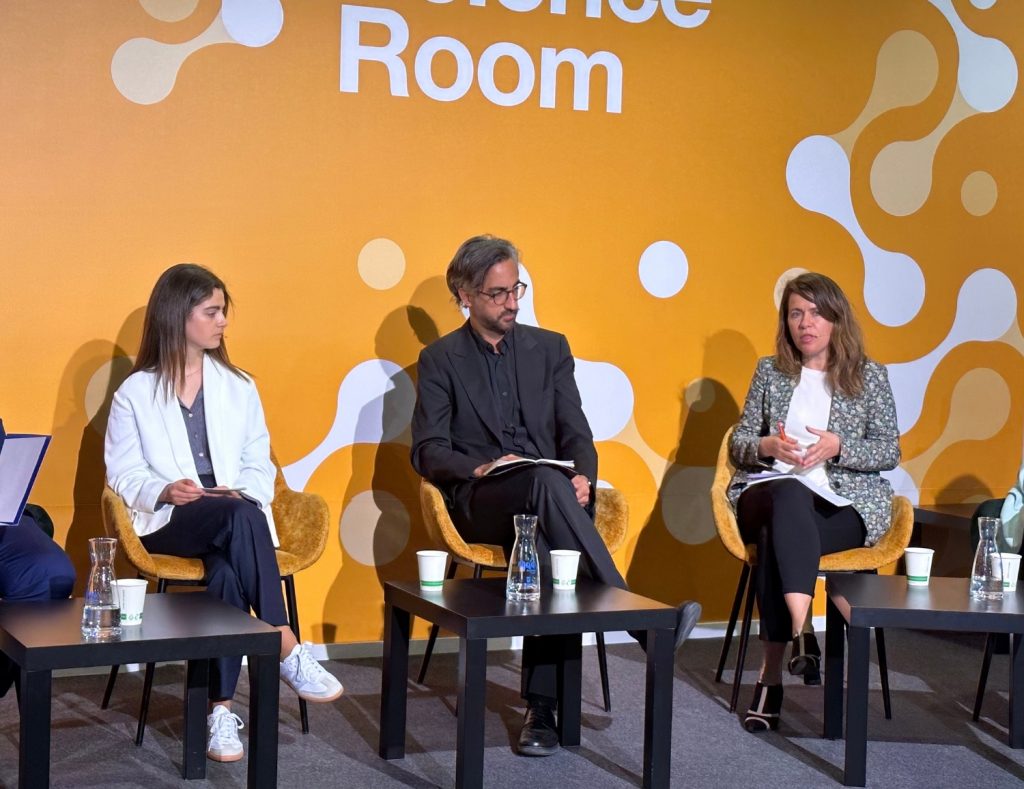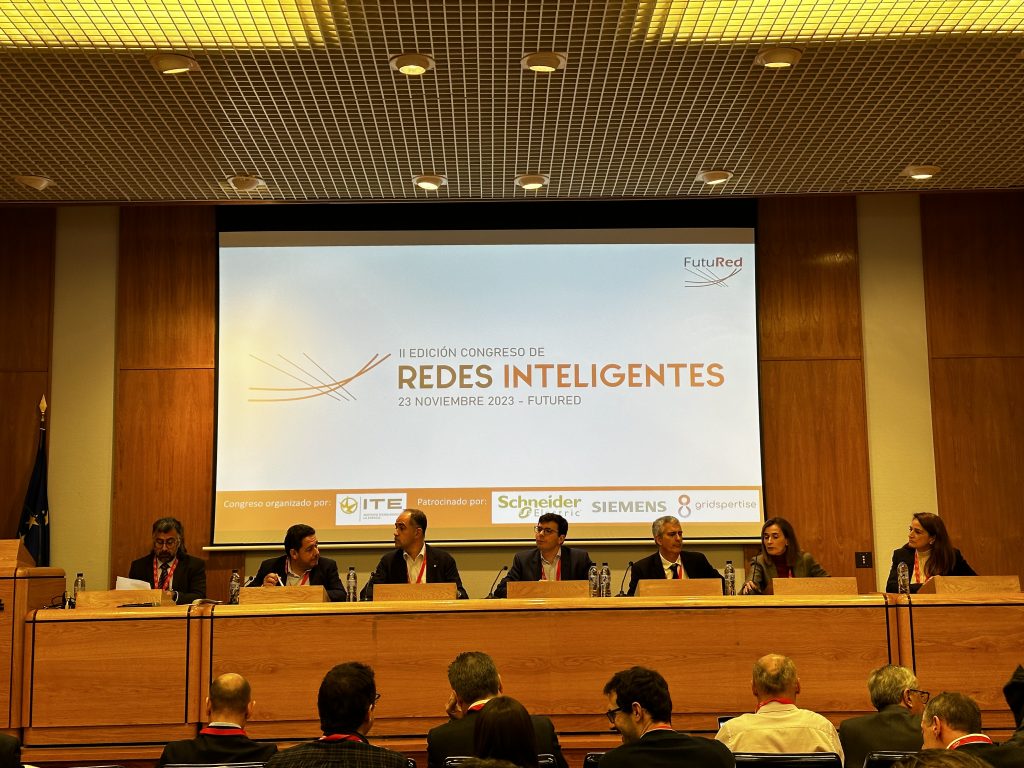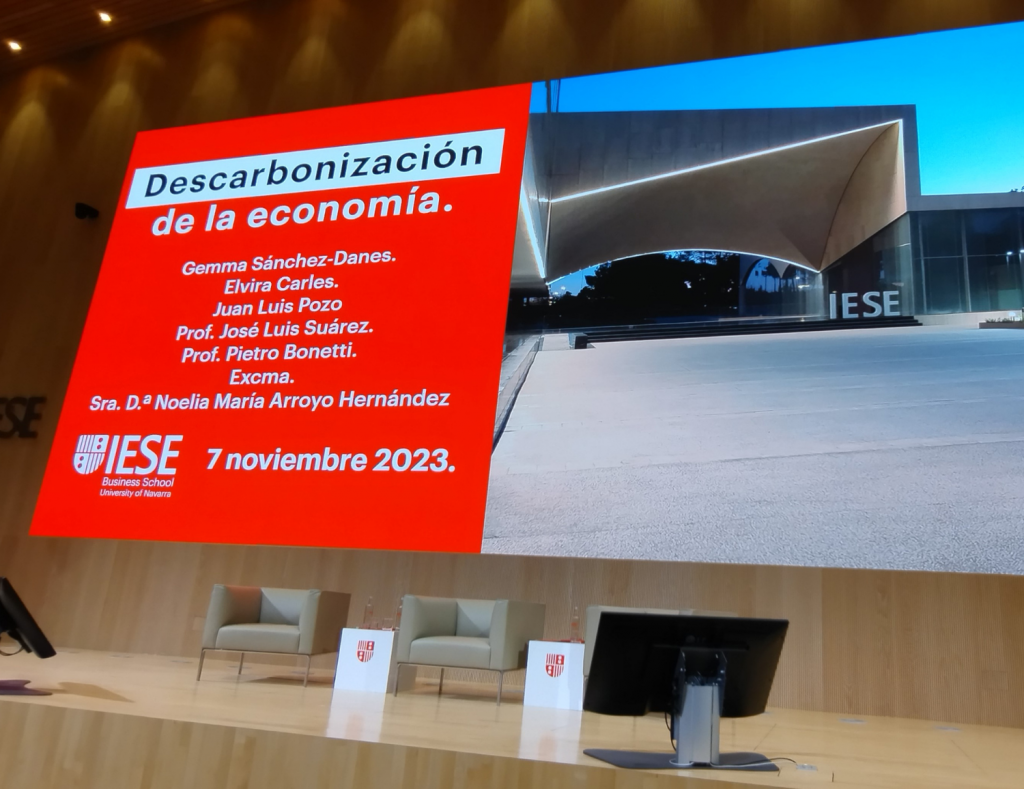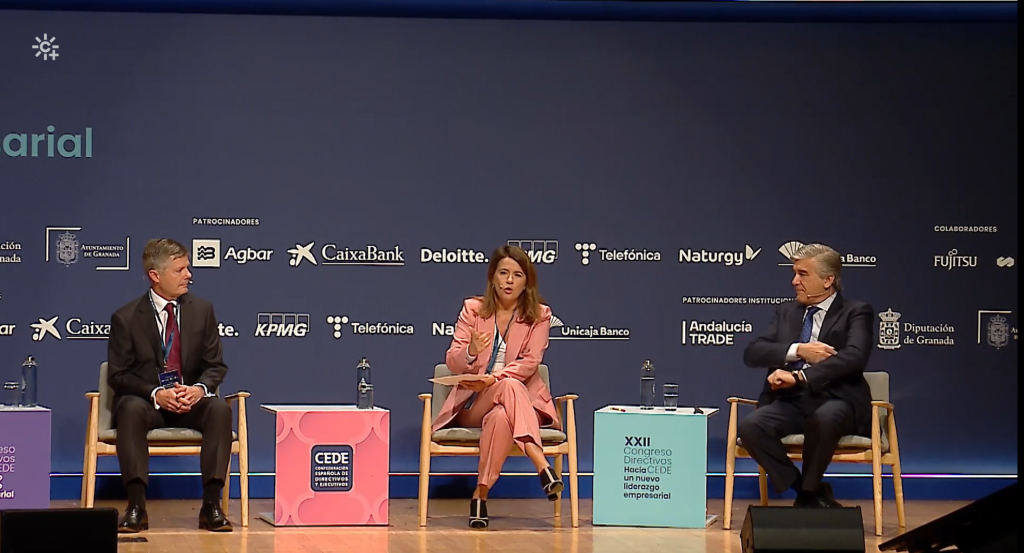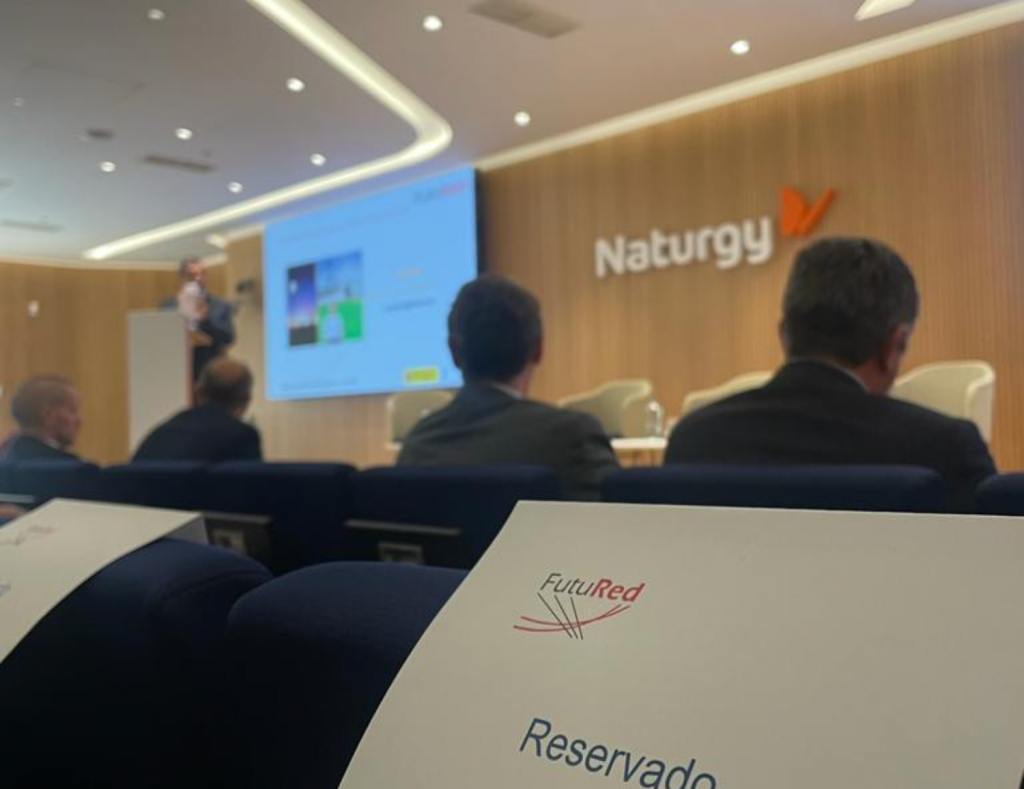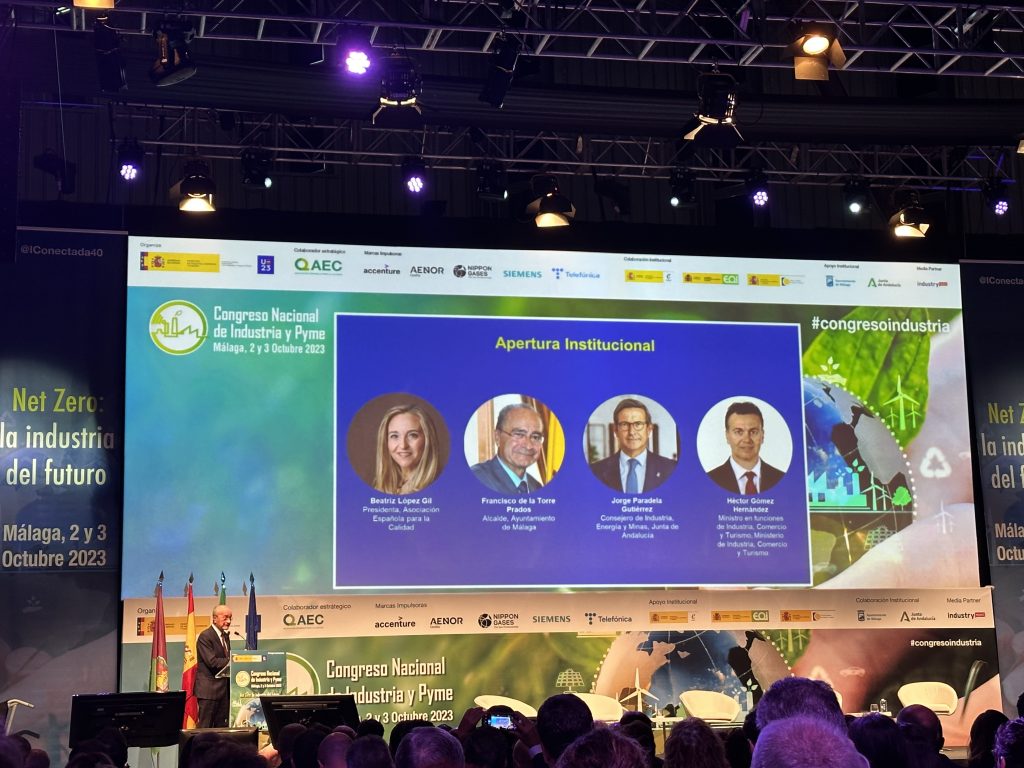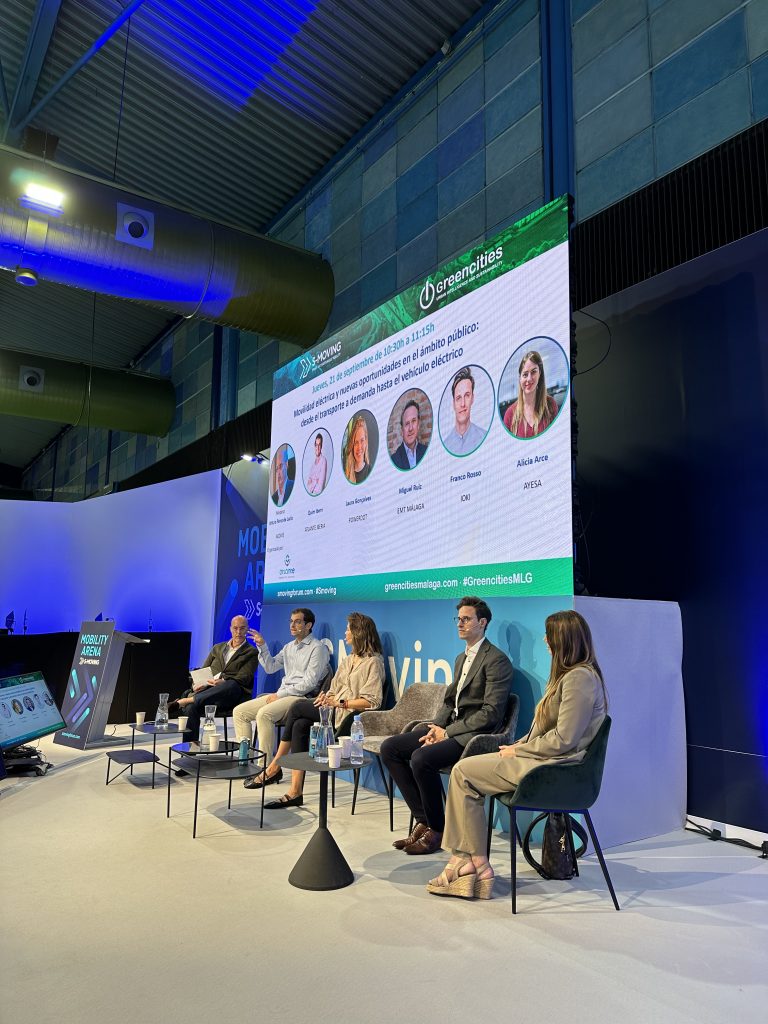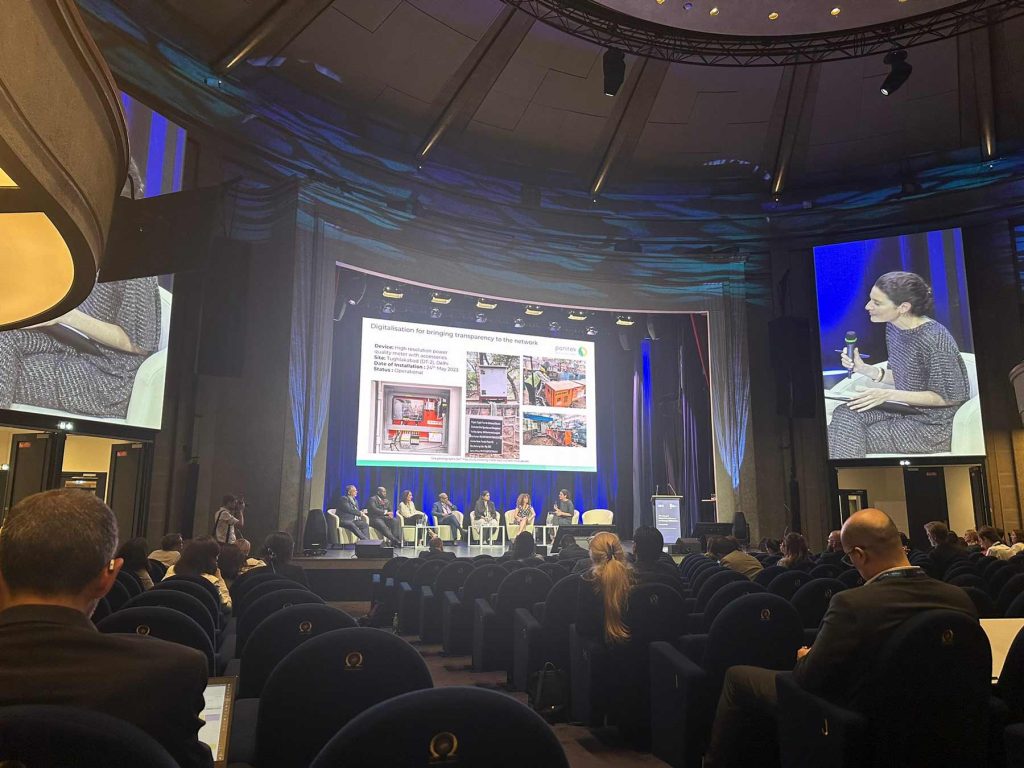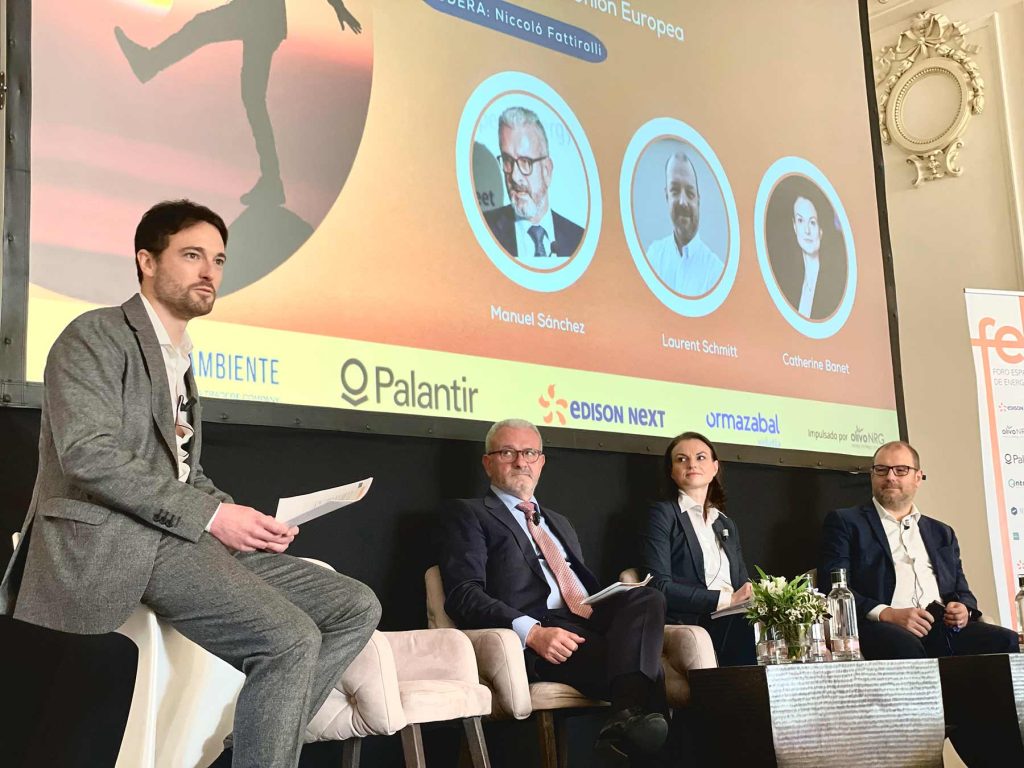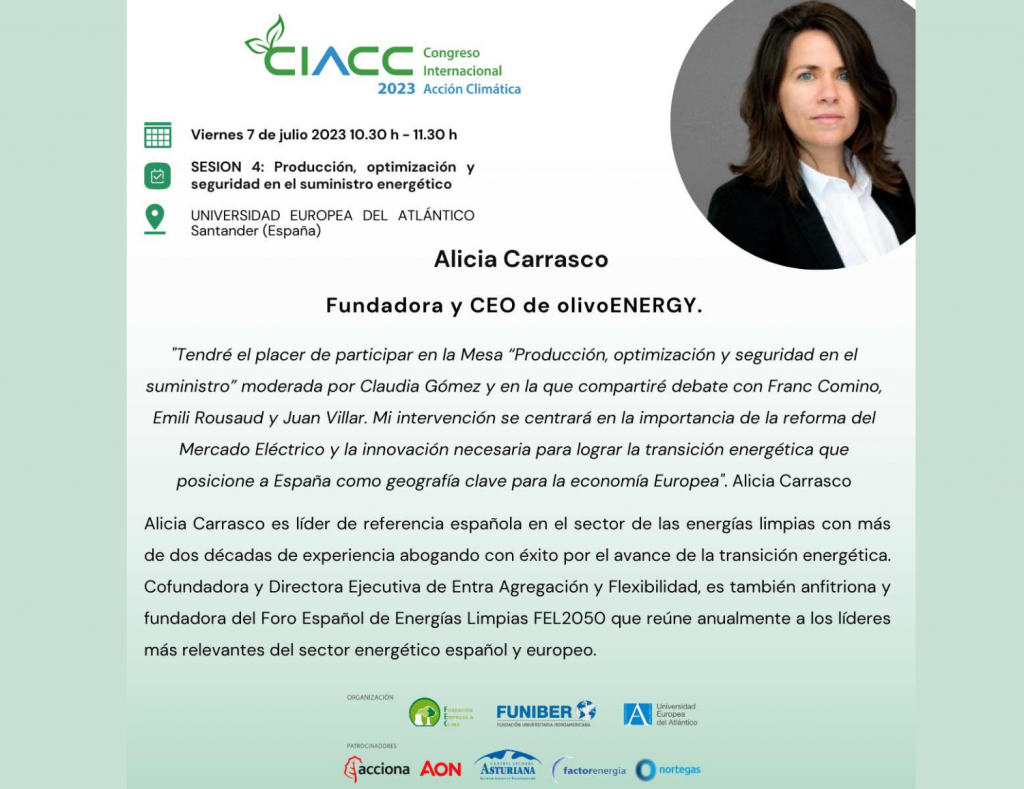Energy moves the world
Last April 25 and 26 met in El Prat more than 200 ‘motivated people’ – term that Joan Herrera mentioned to refer to the attendees – in the first summit of energy communities promoted by UNEF.
From olivoENERGY foreseeing the importance that, from private companies, public and citizenship, is being given to this emerging figure, already since 2018 we are providing services that bring great added value for its design, deployment and implementation.
From olivoENERGY we are clear: energy communities represent a key opportunity to position the citizen at the center of the energy transition, making it its main driver.
Currently, 60% of the energy in the electricity mix comes from renewable sources, but only 1% is generated by citizens, which reveals the great potential of energy communities to involve consumers in the system and democratize the ecological transition.
We are aware of the self-sufficiency capacity of energy communities, which, without having a legal framework, are setting up and operating projects that generate environmental, social and economic benefits for their members and the local areas where they operate.
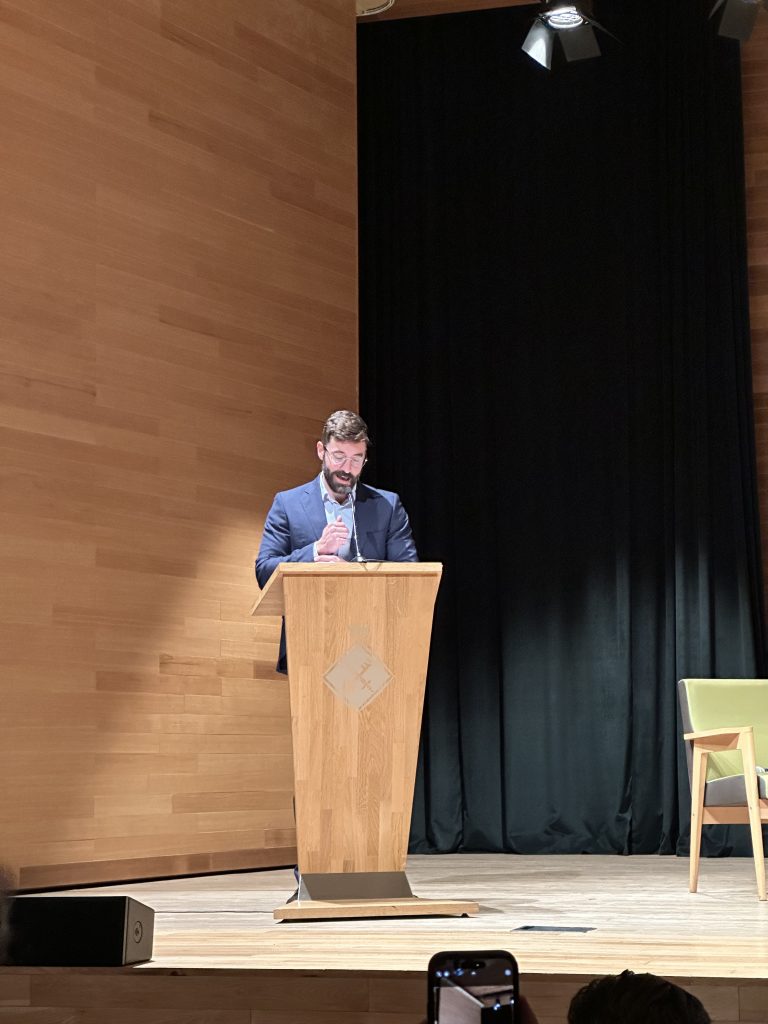
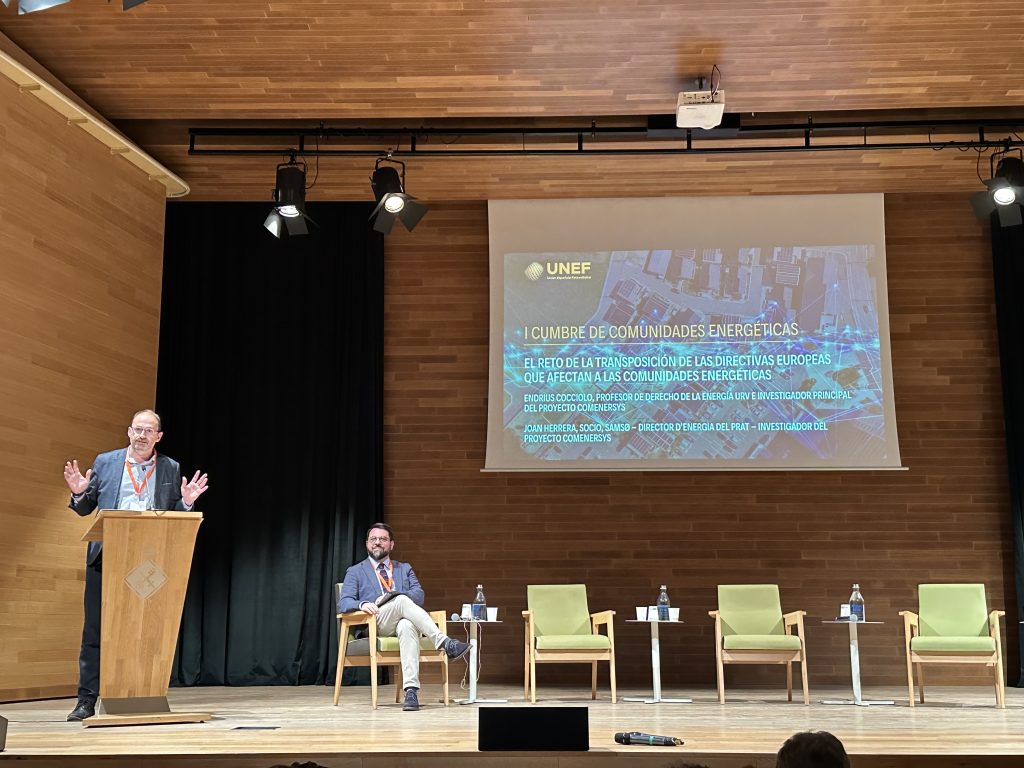
Institutional vision of Energy Communities
Europe currently has more than 4,000 officially registered energy communities, while in Spain there are between 300 and 400. This phenomenon reflects the evolution of energy communities: what was once only theory is now a real practice. It is the beginning of a journey that is just beginning.
The ECs are being established little by little, and in a varied way. There is no single formula for their development, which sometimes makes it difficult to set them up and attract members and investment for projects. From the Administration, Joan Groizard, stresses the need to take further steps to address the challenges these communities are facing.
These communities represent a paradigm shift from centralized to decentralized generation, taking advantage of distributed energy resources of which the community will own or represent.
The challenge of transposing European directives affecting energy communities
We are at a transforming moment in the energy sector, where energy communities are emerging as facilitators of the objectives. They represent an integrated entity by their definition and a tool for consumer empowerment.
There are two ways of articulating energy communities, both in their constitution processes and in the results obtained.
Many activities enabled by European regulations cannot be transferred to the national level, for example, as is the case with network management, a key element whose implementation depends on national regulators.
Regulatory updates, as in RED III, give greater weight to the energy communities, and their role in cooling and heating plans is mandatory.
Joan Herrera mentioned the delay in the transposition of the directives: ‘From Europe the next directive is being approved, and nationally we are transposing the first one’. He also stressed the need for a specific regulation that would frame the communities and give them a specific regulatory framework for action, as is the case in Austria. This would solve the problems of trust in this figure.
The European directives highlight the possibility of ‘sharing’ instead of ‘supplying’, which requires an analysis in Spain for its proper implementation.
They go beyond the rules of the market
Endrius Cocciolo
RECs & CECs
To contextualize some of the comments made during the day, it is important to introduce the definitions of the two types of energy communities according to the European directives:
– Renewable Energy Communities (RECs), Directive (EU) 2018/2001: ‘legal entity which, under the applicable national law, is based on open and voluntary participation, is autonomous and effectively controlled by partners or members who are located in the vicinity of renewable energy projects owned and developed by that legal entity; whose partners or members are natural persons, SMEs or local authorities, including municipalities; whose primary purpose is to provide environmental, economic or social benefits to its partners or members or to the local areas where it operates, rather than financial gain.’
– Citizen Energy Communities (CECs), Directive (EU) 2019/944: ‘a legal entity that is based on voluntary and open participation, and whose effective control is exercised by partners or members who are natural persons, local authorities, including municipalities, or small enterprises, whose main objective is to provide environmental, economic or social benefits to its members or partners or to the locality in which it operates, rather than generating a financial return, and is involved in generation, including from renewable sources, distribution, supply, consumption, aggregation, storage of energy, provision of energy efficiency services or, provision of electric vehicle charging or other energy services to its members or partners.’
The CECs, due to their definition, are the most versatile instrument to constitute, since it does not limit in proximity neither in generation sources, nor in the members that can join. On the contrary, it can be said that the RECs are more intimate since they are managed locally and do not allow the participation of large companies in any way.
It is recommended, as a first step, not to worry initially about determining whether an energy community will be a CEC or REC, what is crucial is its constitution; subsequently, its characteristics and circumstances will determine its typology.
The EC is not collective self-consumption
During the summit, it was highlighted that energy communities cover a broader spectrum than just collective self-consumption. From olivoENERGY, we would like to highlight some of the nationally permitted activities that these communities can carry out: renewable electric generation (photovoltaic, wind, hydro, biomass, biogas and hybrid storage), renewable thermal generation (aerothermal, solar thermal, biomass, biogas, geothermal, hydrothermal), consumption, storage (electric, thermal, chemical, hydraulic, mechanical), sustainable mobility (EV procurement, EV charging management, shared mobility, charging point manager), energy efficiency services (building refurbishment, water saving, energy management), marketer or market representative.
The definition of energy communities is sometimes distorted by companies that only seek to profit from this business model without understanding its true potential and the various benefits it can offer beyond collective self-consumption.
Eligible legal entitities
Energy communities, by definition, require a legal entity to operate, the most common options in Spain being the Association and the Cooperative. Associations stand out for their simplicity of creation as they do not require notarial intervention. However, there are other forms such as the non-profit Limited Company, such as the Comunidad Ciudadana de Energía del Prat. These entities have the advantage of receiving more aid and subsidies easily.
When choosing a legal entity, you should consider aspects such as the need for notarial intervention, the required records, the agility in its formation, governance, available aid and the ease of amending statutes.
In olivoENERGY we offer an exhaustive analysis of the advantages and disadvantages of each legal option, helping to select the most appropriate for each use case and preparing the necessary statutes for its constitution.
Collective self-consumption manager
Collective self-consumption has become an agile and accessible activity for energy communities in Spain, thanks to technological maturity and success stories. However, previously, it faced numerous barriers in its approval and verification by energy distributors, which caused delays of up to a year in its installation.
At the national level, the IDAE’s Guide to Collective Self-consumption mentions the figure of the Self-consumption Manager, which could speed up the processing and implementation of these projects. This manager, either an individual or a legal entity, would act as a representative of the associated consumers, facilitating the registration process, modifications and the distribution of energy in self-consumption.
In other countries, such as Portugal, this figure is already operational and has proven to be effective in speeding up and controlling the deployment of self-consumption systems.
Participation of public entitites in the ECs
The participation of municipalities in energy communities has both advantages and disadvantages. Among the advantages is their ability to generate trust among citizens as they are not for profit, which facilitates the recruitment of members and the establishment of the community. In addition, they can contribute by providing public spaces for renewable energy projects. However, one of the main disadvantages is the bureaucracy associated with the actions to be carried out, which often involves launching tenders for each action.
On the other hand, public entities can facilitate the creation of energy communities through initiatives such as municipal award campaigns to promote renewable energy and sustainable mobility projects, the modification of local laws to include energy competencies, the allocation of budgets to participate in energy projects with citizens, tax credits, among other measures.
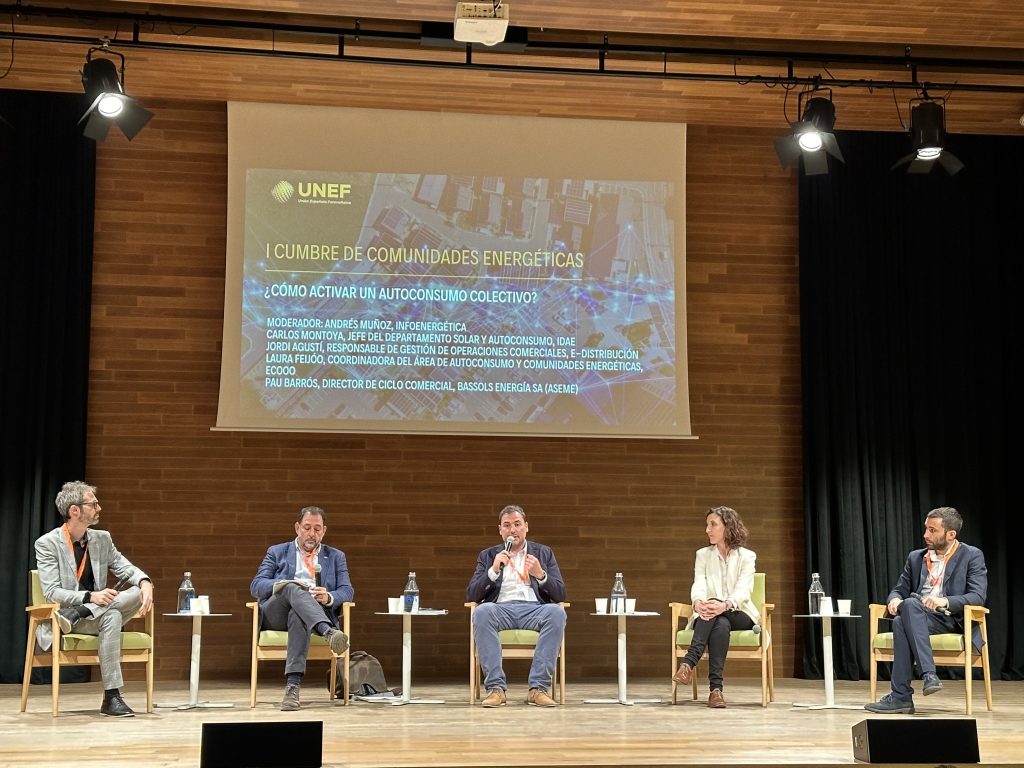
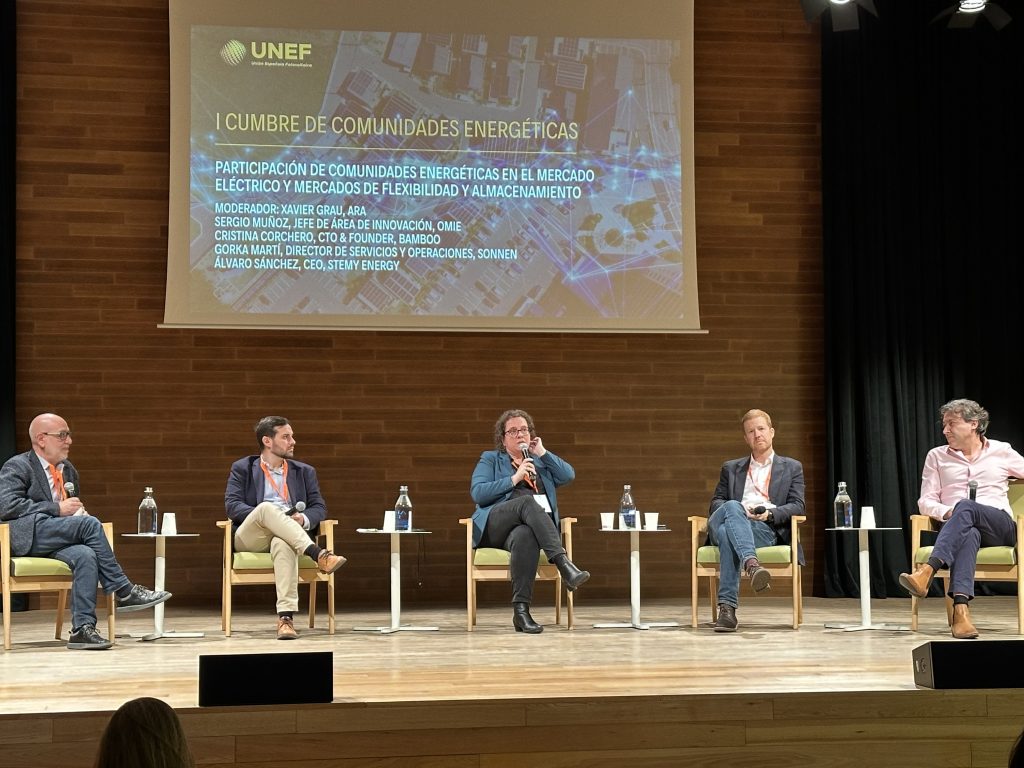
Participation of the ECs in the markets
Currently, the energy communities can participate in the daily and intraday markets through the 4 recognized agents: electricity producers, retailers, direct consumers and representatives. However, they cannot be representatives themselves, but must do so through these agents.
To be in line with the directives, energy communities are required to be recognized as market players in their own right.
- To participate through a retailer and representative, all members of the community would have to belong to the same market agent.
- To participate in the balancing markets managed by the system operator, energy communities must register a programming unit with a minimum capacity of 1 MW.
ECs can provide great value in the market, so it is understood that it is necessary for a community to know its flexibility and how it can be used to provide benefits to its members and to the system itself.
Regulatory barriers that would allow the flexibility of ECs in the system
The following is a list of services and activities that are currently not allowed in Spain due to the lack of transposition of regulations with respect to European directives:
- ‘Peer to peer’ or ‘energy sharing’.
- Connection of the electric vehicle or ‘Vehicle to X’.
- Private network manager.
- Figure of the independent aggregator.
- Flexibility mechanisms: capacity markets, local flexibility markets, peak shaving, etc.
- Difficult access to balancing markets (minimum offers of 1 MW).
- Limited collective self-consumption (distance restrictions).
- Distributed storage.
- Recognition of the energy community as its own market agent.
Energy communities can offer services to grid operators thanks to the flexibility and management of their energy assets. They will have distributed resources that will help maintain the security and quality of supply.
What the sector demands
The energy sector demands a legal framework that encourages and secures the potential of energy communities, as well as citizen empowerment in the system. Measures are required such as greater electrification of demand, promotion of shared mobility, decarbonization, demand management, the figure of the self-consumption manager, adjustment of access and connection procedures, transparency in costs, adaptation of technical regulations, adapted supply contracts, bilateral energy contracting between communities, participation in duality of self-consumption (individual+collective), professionalization of management, and facilitated access to generation and consumption data.
‘A secure and favorable regulatory framework is needed’
The 1st Energy Communities Summit concluded with the signing of a manifesto, signed by 30 local communities, in which they commit to promote a democratic and participatory energy transition; to defend and claim the right to have a legal framework that offers security and is favorable to energy communities, guaranteeing and protecting their social character; and to act so that this model becomes a major player in the energy transition scenario in Spain.
________



